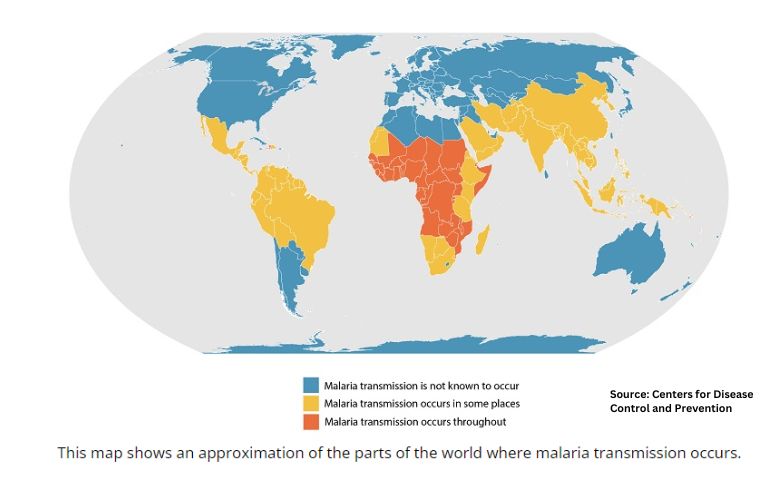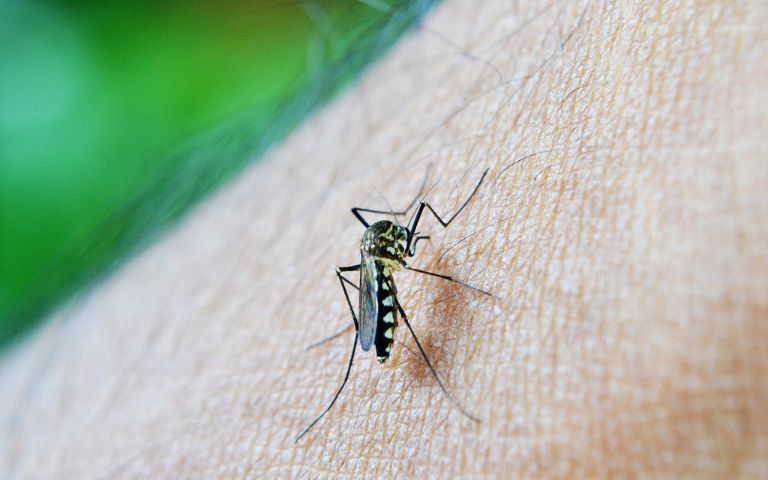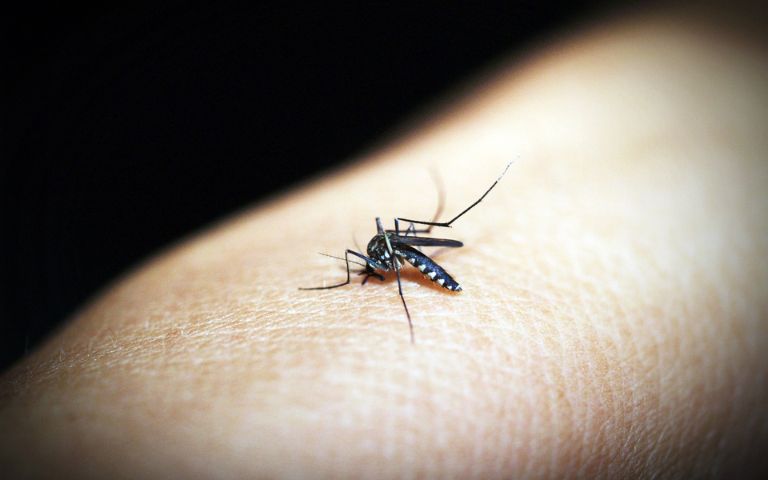Travelling overseas can be an exciting and rewarding experience, giving you the chance to make memories that will last a lifetime. However, without proper planning, even the best-laid plans can go terribly wrong. Travelling to an exotic location? Make sure you are aware of your malaria risk by following these simple steps and know the correct preventative methods such as taking the right malaria medication before travelling.
What is Malaria?
Malaria is a blood-borne infectious disease, transmitted primarily through the bites of female Anopheles mosquitoes. This serious and potentially fatal condition can, however, be effectively managed if diagnosed promptly. Early detection plays a crucial role in preventing illness and death caused by malaria.
Malaria is transmitted through the bite of an infected Anopheles mosquito that releases the Plasmodium parasite into your bloodstream. Once an infected mosquito bites a human, the parasites multiply in the host’s liver before infecting and destroying red blood cells. The World Health Organisation estimates that 216 million cases of malaria occurred worldwide in 2016 and around 445 000 people died from the disease.
Despite Australia being free from endemic malaria, Australians can still catch the disease when travelling to malaria-affected countries in tropical regions such as Asia, Africa, and Central or South America. Each year there are approximately 500 cases of malaria diagnosed in Australia with majority cases involving people who have travelled to malaria-affected countries and didn’t take anti-malarial medications.

Malaria symptoms can include fever, chills and a flu-like illness and when left untreated can cause serious complications including death. Symptoms can start to appear after 7 days or more. If you experience a fever within 3 months of possible exposure make sure to seek medical advice immediately.
How to Prevent Malaria
There is still no reliable malaria vaccine so prevention of this potentially fatal disease mainly relies on avoiding mosquito bites, taking preventive or anti-malarial medication and prompt diagnosis and treatment as soon as symptoms appear. Young children, pregnant women and those with a weakened immune system are the most at risk of developing serious illness if they become infected.
It’s not possible to avoid getting bitten by mosquitoes completely, but the less you’re bitten, the less likely you are to get malaria. To avoid getting mosquito bites you should try to stay indoors when it’s dark outside, preferably in a screened or air-conditioned room. You should also strive to wear protective clothing i.e. long pants and long-sleeved shirts including using insect repellent and bed nets (mosquito netting) when you sleep.
In some places, malaria can be treated and controlled with early diagnosis. However, some countries lack the resources to do this effectively. That’s why prevention is the best cure for any disease.
Malaria Medication
You can take malaria medication called anti-malarials to prevent and treat malaria. If you’re travelling to an area where malaria is present, it is imperative to reduce the risk of infection by taking medicine before you travel, whilst you’re there and even after you return home. There are a variety of medicines that can prevent malaria dependent on the geographic region in which you will be travelling to and your health condition (for example whether you’re pregnant, elderly or young, sick, or have immunity or resistance to malaria, or have any allergies or sensitivity to medicine).

It is highly important to consume malaria medication if you are aware that the location you are travelling to is malaria-affected and to follow the correct schedule for taking them. Majority of people get infected due to them not taking the right malaria medication or not following the correct dosing schedule. After returning home from your travels, it is advised that you continue taking the medicine for the recommended length of time in order to make sure that all parasites have been eliminated from your body. It is required that you continue taking the medicine for 1 to 4 weeks upon returning home.
If you’re planning to travel overseas to malaria-affected countries, you should get advice from your local GP or a travel clinic 4-6 weeks before you depart. Book a consultation with your friendly Southbank Doctors at Southgate Medical today for a thorough discussion relating to your travel plans.

